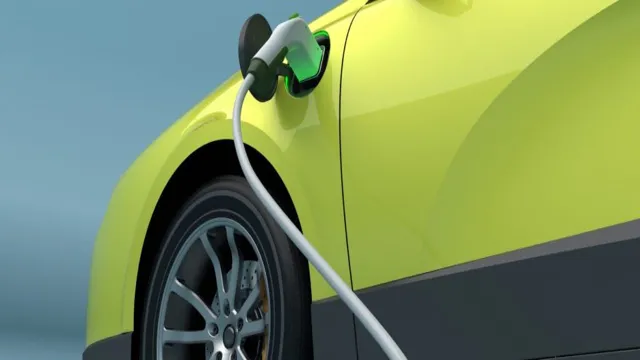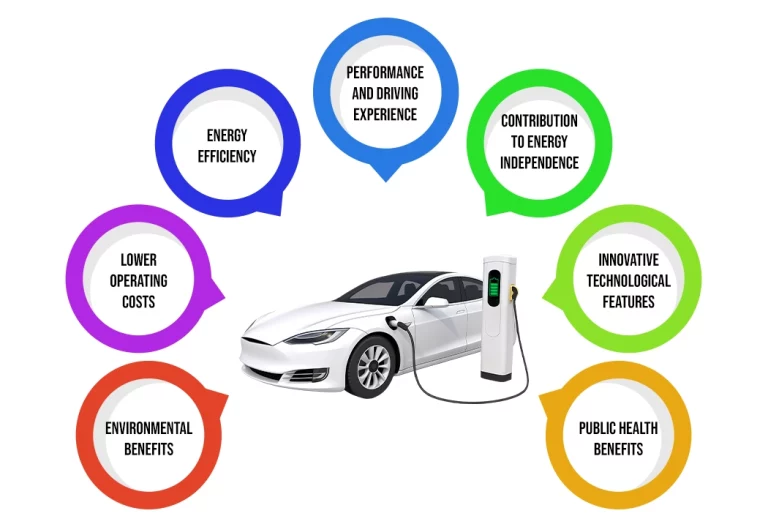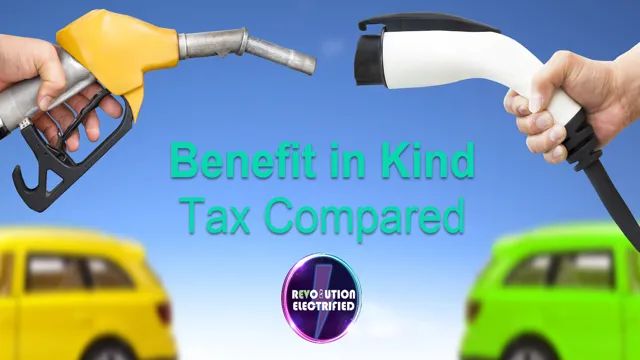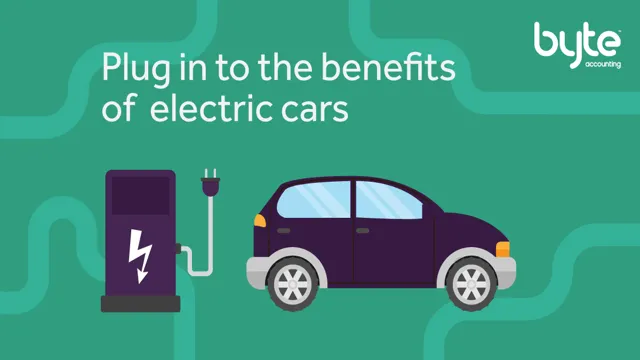Electric Car Tax Benefits: Save Money and Help The Environment
If you’re in the market for a new car, you might want to consider an electric vehicle (EV) for more than environmental reasons. Owning an electric car may offer a variety of tax benefits that make it worth the investment. We all want to save money where we can, right? Well, owning an electric car could save you big bucks, as these vehicles are eligible for a range of federal and state tax credits.
In this blog, we’ll discuss the tax benefits of owning an electric car and how they can make your wallet happy. So buckle up and let’s dive in!
Federal Tax Credits
One of the major advantages of owning an electric car is the tax benefits that it provides. Federal tax credits are one such benefit that can help you save money while reducing your carbon footprint. These credits can range from $2,500 up to $7,500 depending on the type of vehicle that you own, and can be claimed on your tax return.
This means that you not only get to save on fuel costs, but can also benefit from these tax credits. Additionally, some states offer their own incentives for electric vehicle owners, such as rebates or reduced registration fees. By taking advantage of these tax benefits, you not only contribute to a cleaner environment, but also save money in the process.
Explanation of federal tax credits for EV owners
Are you considering purchasing an electric vehicle (EV)? If so, brace yourself for some good news on federal tax credits for EV owners. These credits are designed to incentivize people to purchase electric cars and ultimately help to reduce carbon emissions. The federal tax credit for EV owners can range anywhere from $2,500 to $7,500 depending on the make and model of your car and its battery size.
Essentially, the larger the battery, the more significant the credit will be. However, it’s essential to note that these credits are only available for new EV purchases, not for used ones. Additionally, these credits are only available until a certain number of EVs are sold by each manufacturer, so it’s crucial to take advantage of them while they’re still available.
So, if you’re in the market for a new EV, be sure to research the tax credits available to maximize your savings!
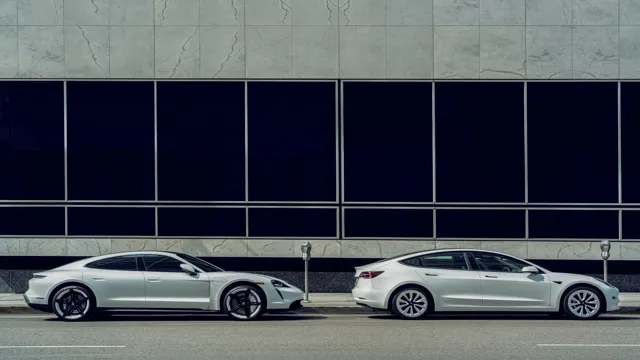
Eligibility requirements and limitations
Federal tax credits provide a great opportunity for American taxpayers to save money on their income taxes. These credits are designed to reward taxpayers who meet certain eligibility requirements and participate in qualifying activities such as energy efficiency upgrades, charitable giving, adoption expenses, and college education expenses. However, there are some eligibility requirements and limitations to consider when claiming federal tax credits.
For instance, some credits are only available for a limited time period or have income limits for eligibility. It is essential to understand all the requirements and limitations before claiming credits on your tax return to avoid any hassles or penalties. Additionally, it is crucial to keep all necessary documentation to support your claims in case of an audit.
Overall, federal tax credits can be a great financial incentive for taxpayers who meet the criteria and can help them save a considerable amount on their tax bills.
State and Local Incentives
When it comes to electric cars, tax benefits can be a major draw. Many states and localities offer incentives to encourage the purchase or lease of electric or hybrid vehicles, such as tax credits or exemptions. These incentives vary widely depending on where you live, but they can significantly reduce the cost of owning an electric car.
Some states also offer additional perks, such as access to carpool lanes or free parking. For example, California offers a rebate of up to $7,000 for the purchase or lease of a new electric car, and some cities in Colorado offer free parking and charging for electric vehicles. It’s worth doing some research to see what incentives are available in your area, as they can make a big difference in the long run.
Overview of state and local incentives for EVs
For those interested in purchasing an electric vehicle (EV), there are a variety of state and local incentives available to help make the transition to electric power more affordable. The type and amount of incentives available vary widely depending on your location, so it is important to research what programs are available in your area. Many states offer rebates or tax credits for purchasing an EV, with amounts ranging from a few hundred to several thousand dollars depending on the vehicle’s battery capacity.
Some states also offer additional benefits for EV owners, such as special carpool lane access or discounted rates for charging at public charging stations. In addition to state-level programs, many cities and municipalities offer their own incentives to encourage EV adoption, such as free or discounted parking for electric vehicles or reduced registration fees. Taking advantage of these incentives can make it significantly more affordable to purchase an electric vehicle and help to reduce your environmental impact.
Examples of states with the best incentives for EV owners
When it comes to purchasing an electric vehicle (EV), there are numerous state and local incentives that can help offset the higher initial cost. Some states offer tax credits or rebates, while others provide access to HOV lanes or free charging stations. California is arguably the state with the best incentives for EV owners, offering up to $7,000 in rebates and numerous other perks, including access to HOV lanes and free parking at charging stations.
Colorado is another state with attractive incentives, offering up to $5,000 in tax credits and waived taxes on EV purchases. In New York, EV owners can receive up to $2,000 in rebates and access to exclusive carpool lanes, while in Oregon, residents can receive up to $2,500 in rebates and access to free charging stations. These are just a few examples, but it’s clear that incentives for EV owners are on the rise, making it easier and more affordable to make the switch to electric.
How to find incentives in your area
When it comes to finding incentives for your business, it’s important to look beyond federal programs and take advantage of state and local incentives. These incentives vary depending on your location, but they can include tax breaks, grants, and low-interest loans. To find out what incentives are available in your area, start by checking with your state’s economic development agency.
They will have information on state-level programs that you may be eligible for. You can also check with your local Chamber of Commerce, which can provide details on local incentives, such as property tax rebates or utility bill discounts. Additionally, many cities and towns offer programs targeting specific industries, such as technology or manufacturing.
By taking advantage of these incentives, you can save money and boost your business’s growth. Don’t miss out on these opportunities – do some research today to see what incentives are available in your area.
Lower Operating Costs
Tax benefits for electric cars can significantly lower a driver’s operating costs. The federal government offers a tax credit of up to $7,500 for those who purchase an electric vehicle. State and local governments may also offer additional incentives, such as tax rebates or free parking.
This not only saves drivers money upfront but helps to offset the higher purchase price of electric vehicles. Additionally, the cost of operating an electric car on a daily basis is much lower than a traditional gasoline-powered car. The fuel savings alone can add up to hundreds or even thousands of dollars over the life of the vehicle.
Furthermore, electric cars require less maintenance than their gas-powered counterparts as they have fewer moving parts. All of these factors combined make electric cars a more affordable and cost-effective option for drivers.
Comparison of fuel and maintenance costs between electric cars and gas-powered cars
Electric cars have been a game-changing technology in the automotive industry, as they offer significant benefits in terms of fuel and maintenance costs over traditional gas-powered cars. The lower operating costs of electric cars are mainly attributed to their energy-efficient technology, which requires less maintenance and is cheaper to fuel than gas-powered engines. The maintenance costs for electric cars are significantly lower than those of gas-powered cars because they do not require regular oil changes, spark plug replacements, or transmission repairs.
Additionally, electric cars do not have as many moving parts as traditional gas-powered engines, reducing the chances of breakdowns and costly repairs. Fuel costs for electric cars are also significantly lower than those for gas-powered cars, as they can be recharged using electricity, which costs much less per gallon equivalent than gasoline, also considering the low electricity rates in many areas. In conclusion, the lower operating costs of electric cars make them a smart financial choice for anyone in the market for a new car, contributing to a better environment overall.
Savings on electricity costs
Lowering operating costs is a prime goal for any business that wants to increase its revenue streams. One way to achieve this is by saving on electricity costs. This can be accomplished by replacing outdated equipment with more energy-efficient options.
For example, switching to LED lighting can reduce energy consumption by up to 70%. Implementing timers on equipment can also help reduce electricity usage during off-peak hours. Furthermore, maintaining proper insulation and using natural light can help in reducing the use of heating and air conditioning, leading to significant savings.
By prioritizing energy efficiency, businesses can drive down their overall operating costs while simultaneously reducing their carbon footprint. The benefits are twofold – cost savings and social responsibility. So, what are you waiting for? Take the first step towards a more sustainable and cost-effective future for your business.
Environmental Benefits
One major benefit of owning an electric car is the tax incentives that come with it. Many governments offer tax credits or deductions to customers who purchase electric vehicles, which can significantly reduce the upfront cost of the car. For example, in the United States, the federal government offers a tax credit of up to $7,500 for eligible electric vehicles.
Additionally, some states offer their own incentives, such as rebates or tax exemptions. Not only do these tax benefits make electric cars more affordable for consumers, but they also encourage the adoption of cleaner, more energy-efficient vehicles that produce less pollution and greenhouse gas emissions. By driving an electric car, you can reduce your carbon footprint and contribute to a more sustainable future.
Explanation of how electric cars reduce emissions and improve air quality
Electric cars have proven to be an excellent solution to the growing problem of pollution and air quality. By using electricity as their primary source of power, they release zero emissions, which significantly reduces our carbon footprint. This means that electric cars have a significant effect on improving air quality, especially in congested urban areas where pollution levels are the highest.
The production of electricity can still have an impact on the environment, depending on how it is generated; however, even when powered by fossil fuels, electric vehicles still emit fewer emissions than traditional gasoline-powered cars. This is because they are significantly more efficient, and rechargeable batteries can be recycled, reducing the amount of waste we produce. As we continue to work towards a more sustainable future, electric cars will undoubtedly play a vital role in reducing emissions and improving air quality for generations to come.
Impact on overall carbon footprint
One of the most significant environmental benefits of reducing carbon emissions is the reduction of our overall carbon footprint. Carbon emissions are a major contributor to climate change, and by reducing our carbon footprint, we can help combat its effects. Every little action counts, and even taking small steps to reduce our carbon footprint can make a significant difference.
Simple actions like turning off lights and electronics when not in use, using energy-efficient appliances, reducing plastic usage, and using public transportation can all help to reduce our carbon footprint. The key is to get everyone involved and understanding the impact that reducing our carbon footprint can have on the environment. By working together, we can make a positive impact towards a more sustainable future.
Conclusion
In conclusion, owning an electric car not only benefits the environment but also your wallet. With tax incentives, exemptions, and credits, driving an electric car can provide significant savings on both the upfront and ongoing costs associated with vehicle ownership. So, not only can you feel good about reducing your carbon footprint, but you can also enjoy the added bonus of a little extra cash in your pocket.
Drive green, save green, and enjoy the ride!”
FAQs
What tax benefits are available for owning an electric car?
There are federal and state tax credit opportunities available for electric car owners, which can reduce the cost of purchasing and owning an electric vehicle.
Do all electric cars qualify for tax benefits?
No, not all electric cars qualify for tax benefits. The amount of the tax credit varies depending on the make and model of the electric car.
Are there any non-monetary tax benefits for owning an electric car?
Yes, some states offer additional benefits such as access to HOV lanes, free parking in certain areas, and exemption from emissions testing.
Can the tax credits for electric cars be carried over from year to year?
Generally, tax credits for electric cars cannot be carried over from one tax year to the next. However, there may be some situations where exceptions apply. It is best to consult with a tax professional to understand the specifics.

